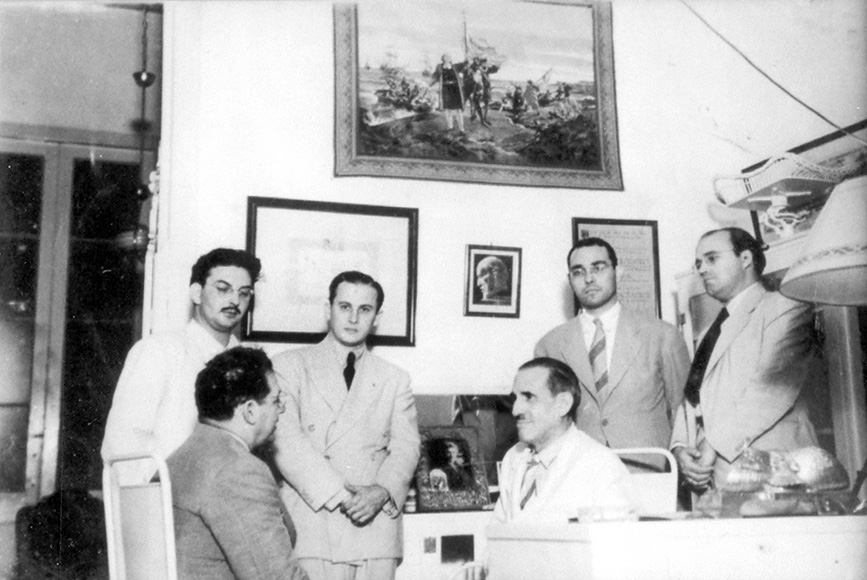June 4, 1956
As a response to the collapse of the Civic Dialog talks and the increasing political violence, Batista met with congressional leaders, his cabinet, other officials and political leaders at Vento from 4 June to 20 July. From Vento they announced a new plan for resolving the crisis. The “Vento Plan” (Plan de Vento) offered biennial elections (including provincial governors and municipal offices) within ten months (in 1957) and general elections a year later. Bolstering the Vento Plan, Batista announced he would be stepping down and would not be a presidential candidate in the 1958 elections.
Although initially well-received by the press, the public, and the electoralists, the plan ran aground in July as the revolutionary opposition rejected it, including Grau San Martin, Prío, the Ortodoxos and the student organizations.
Among the few opposition leaders supporting the plan were Emilio "Millo" Ochoa and Carlos Márquez-Sterling. Encouraged by the positive response from the national press these two leaders agreed to form a coalition of their forces. They hoped to convince the Ortodoxo party to accept the government’s offer. The Ortodoxos, however, rejected it declaring that “to parley with the spokesmen of Batista is tantamount to treason and dishonor.”
 Millo Ochoa (third from left) meeting with Ramon Grau (seated, middle) and
Millo Ochoa (third from left) meeting with Ramon Grau (seated, middle) andother Auténtico Party leaders. (Latin American Studies.org collection)
based on Manuel Márquez-Sterling's Cuba 1952-1959 and
Cuba 1952-1959 Interactive Timeline
Cuba 1952-1959 Interactive Timeline


 Mobile subscription
Mobile subscription



No comments:
Post a Comment